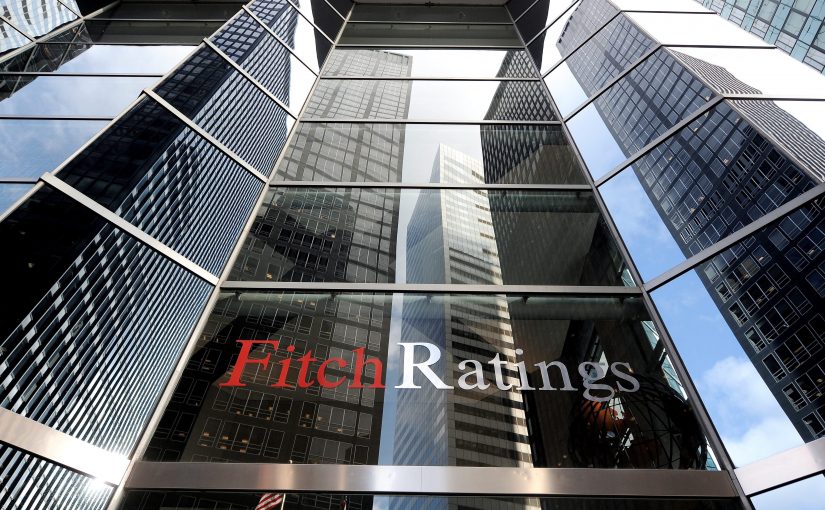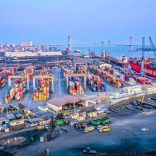Mozambique: Private security companies owe 123 million meticais to INSS
Fitch affirms Mozambique at ‘CCC’, debt to GDP falls to 91%

File photo: Lusa
Fitch Ratings has affirmed Mozambique’s Long-Term Foreign-Currency Issuer Default Rating (IDR) at ‘CCC’ amidst tight financing strains, wider fiscal deficit and high government debt among other challenges.
In its rating note, Fitch noted prolonged protests following the October 2024 presidential election translated into weaker economic activity, a widening fiscal deficit, and suspension of the country’s IMF programme, impairing the government’s ability to meet its high local-currency maturities in 2025 and 2026.
Switch auctions on local-currency bonds, central bank borrowing, and short-term financing are being used to service debt, but the large financing needs pose a significant vulnerability, the rating note highlighted.
The country’s FX reserves have held up, but external disbursements have declined, which coupled with challenging domestic financing, increases risks of spill over to external repayments.
Mozambique’s fiscal deficit widened to 4.9% of gross domestic product (GDP) in 2024, from 2.1% in 2023, mostly reflecting a decline in grants and some impact from the post-electoral violence on revenue collection.
Fitch expects the deficit to narrow to 3.4% of GDP in 2025 and a forecast 3.6% in 2026, mostly driven by falling expenditure.
Financing constraints will contain capex, and we anticipate the public sector wage bill will fall relative to GDP. Nevertheless, budget rigidities will remain significant.
The government is exposed to accumulated external arrears to several bilateral and multilateral creditors in 2024 – including the IMF, Portugal and Islamic Development Bank.
In many instances, payments were only resolved after their specified grace period had elapsed. Fitch did not consider these incidents as defaults, as external commercial debt was not affected.
Fitch understands that the accumulation of external arrears to the official sector has continued in 2025. The accumulation of arrears on domestic bonds also remains an issue, with the time for resolution of these delays having increased.
In August 2023, Fitch withdrew Mozambique’s Local-Currency IDR due to a lack of reliable information on the timely resolutions of late coupon payments on unrated domestic government bonds (denominated in local currency).
Mozambique’s government debt fell to 91% of GDP in 2024 from 97.7% in 2023, mostly reflecting the out-of-court settlements pertaining to the ‘hidden-debt scandal’. Fitch said it expects government debt to increase and stabilise at about 92% of GDP through 2026 and 2027.
The rating note said the increase will reflect the fiscal deficits and the rise in Empresa Nacional de Hidrocarbonetos’ liabilities associated with Area 1, only partly offset by the nominal GDP growth.
Real GDP growth significantly slowed to 2.2% in 2024, from 5.5% in 2023, mostly reflecting the broad negative impact of post-election violence on economic activity in the last quarter of the year.
“We expect growth to only marginally rise to 2.5% in 2025, reflecting the contraction in 1Q25 and the dampening effects of FX scarcity on businesses activity”.
Fitch Ratings forecast growth of 3.4% in 2026 and 4% in 2027, which mainly reflects its assumption of a resumption in the construction of Total’s LNG project in 4Q25.
Political and social unrest in Mozambique eased considerably through 1H25. The new president Daniel Chapo was sworn into office in January and reached a political agreement with opposition parties in March to address political tensions.
The agreement included a commitment to judicial and electoral reform and changes to presidential powers. Venancio Mondlane, the figurehead of the protest movement and second in the presidential elections, was not included in the agreement.
Mozambique’s current account deficit (CAD) will widen significantly to 26% of GDP in 2025 and 29.4% in 2026, from 11% in 2024, reflecting a jump in imports (services and goods) associated with LNG projects, particularly the resumption of the construction of Total’s LNG project.
These imports will be fully financed by investment through the financial account and will have a limited impact on Mozambique’s international reserves.
“We expect international reserves to remain broadly stable at USD3.5 billion in 2025 and USD3.4 billion in 2024, from USD3.5 billion in 2024.
“FX scarcity has increased in 2025, partly due to a decline in external disbursements to the government and the suspension of USAID -USD586 million in 2024, equivalent to 3% of GDP.
“The increase in April of the share of mandatory conversion of export receipts to local currency (to 50% from 30%) will ease some of the FX scarcity. Fitch also assumes that a new IMF programme and associated funding from the broader official sector will be announced over the forecast horizon.












Leave a Reply
Be the First to Comment!
You must be logged in to post a comment.
You must be logged in to post a comment.